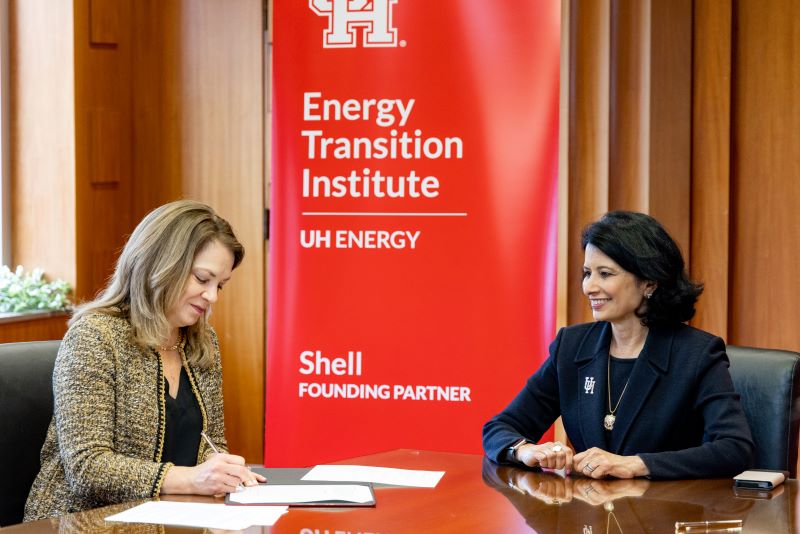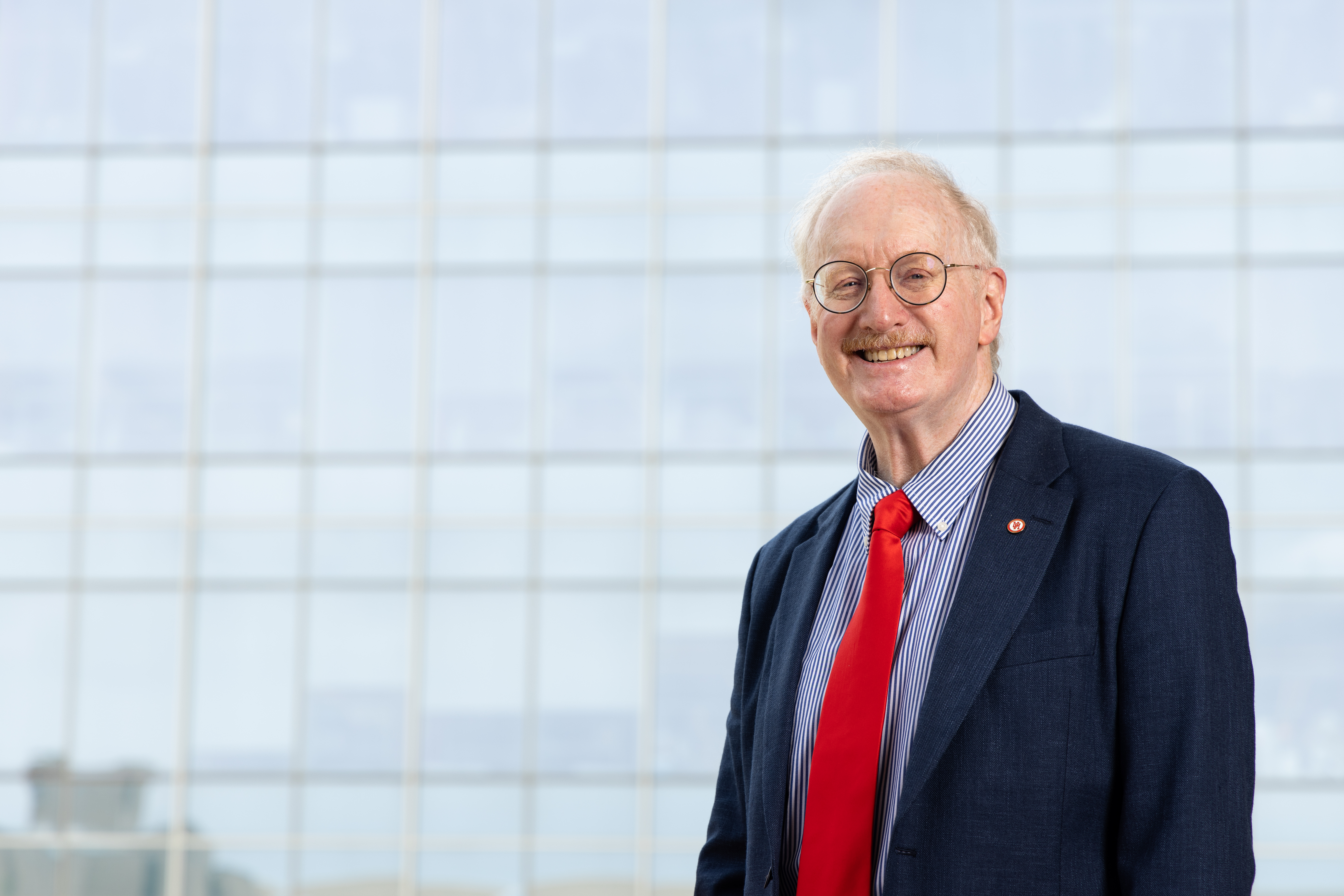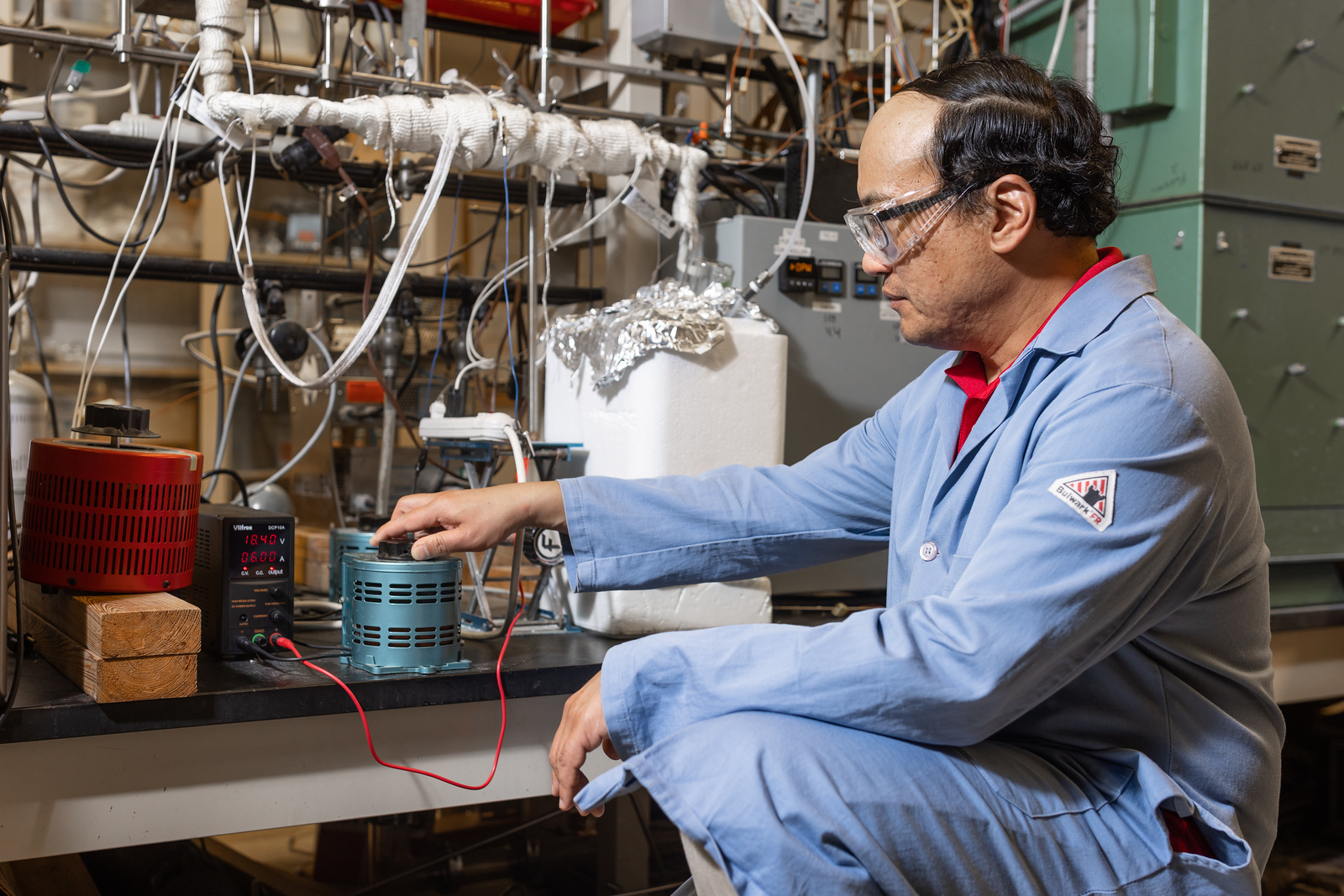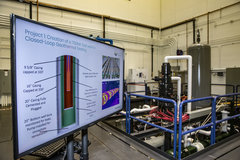Dr Joe Powell explains how the University of Houston’s Energy Transition Institute is working to grow vital knowledge and disseminate their research.
“Energy has been front-page news throughout my career, with ever-present challenges in energy supply now augmented by grand challenges in climate change and plastics waste,” says renowned chemical engineer Dr Joe Powell, founding executive director of the University of Houston's Energy Transition Institute (ETI), which opened in 2022 with a $10 million gift from Shell.

Powell took on the executive director role at the new institute early in 2023, having retired as chief scientist of chemical engineering for Shell after more than 32 years. “The next generation will be the ones who solve these challenges and it’s exciting to be at the University of Houston (UH), sharing collective knowledge and experience, helping students make the connections and getting them grounded in the fundamentals of energy systems. Students bring a lot of energy and creativity and want to make a difference.”
In August 2023, the Baker Hughes Foundation announced a $100,000 gift to the ETI to support the University of Houston’s energy research and workforce development programs. “We’re very grateful to the Baker Hughes Foundation for this gift, which will fund much needed student scholarships,” says Powell.
UH’s Energy Scholars Program provides undergraduate students the opportunity to participate in research programs focused on the Energy Institute’s three key pillars: carbon management, hydrogen and circular plastics. “Our university is embedded in one of the most diverse cities in the U.S.,” says Powell. “It’s a tremendous opportunity to help educate students from diverse and underrepresented backgrounds and empower them to be an integral part of the future energy economy. Research exposure as an undergraduate compelled me to go on to graduate school to obtain the training needed to actively help resolve the energy crisis of the 1970’s. It was truly inspirational!”
Powell says developing a skilled and knowledgeable workforce to support the energy transition is a critical part of the ETI’s mission. “We really want to get the next generation of students to strongly consider energy careers,” he says. “You’re always competing for the hearts and minds of the best and most energetic students to consider careers that can make a difference to society.”

On top of its strong graduate research program, empowering and developing the capabilities of incoming undergraduates is vital. “UH students are often the first generation in their family to graduate from a full four-year college degree program,” he says. “We can have a very strong impact in connecting them to future-economy jobs, and for many it will be transformational in terms of what it means to their families and communities.”
Houston is a global hub for energy and chemicals, and as such many local employees will be faced with navigating the social and technological changes that are part of the energy transition, including impact on jobs. “We’re in a very energy and chemicals intensive part of the US, and many of our students’ come from families and communities connected to these sectors,” says Powell. “We can help provide the transition to future well-paying jobs that will be integral to achieving net-zero goals.”
The institute is taking full advantage of UH’s leading programs across a variety of subjects to ensure a multidisciplinary approach.
“We’re not just about the engineering and science side of things, but also communications, law, public policy, business, and commercialization,” explains Powell. “The university’s Wolff Center for Entrepreneurship is the top undergraduate program in the US, for example. We’re looking to connect across all the different colleges and degree programs to give UH graduates a grounding in energy so they can hit the ground running in their careers.”
UH is also supporting the upskilling of mid-career and even senior members of the energy sector. In conjunction with the American Institute of Chemical Engineers, the university offers micro credentialling certificates in a Hydrogen Economy Program, a series of three-badge continuing education courses. It’s delivered online, including synchronous sessions for real-time interaction with instructors – a mixture of UH academics and industry experts. The program provides technical, business and policy grounding as well as updates on current developments and opportunities around one of the most promising future energy vectors.

“We get mid-career postgraduates, corporate scientists, vice presidents and strategists from industry – anyone who wants to understand the opportunities for hydrogen, the developing technologies and markets,” says Powell. “You don’t have to be a mathematician or an engineer to participate. We have students joining from the US and all over the world – Egypt, Kazakhstan, South America, the Middle East. Students do a class project where we all learn from each other. It’s highly interactive.”
Meanwhile, investment into academic research into the ETI’s key pillars of carbon management, hydrogen and circular materials is growing. “We’re looking to double it,” says Powell. Involving industry is critical, he adds. “To date the energy industry has been primarily fossil based – about 80 percent of it still is. It’s not a matter of saying ‘Let’s switch to renewable energy’ and we’re done! There are a lot of issues to work through regarding land and resource use, infrastructure, and costs to make that happen at scale. There’s a tremendous amount of know-how in the conventional energy industry which can be pivoted and leveraged to work on the large-scale projects needed to drive the energy transition. We’re tapping into that industry expertise and bringing in the next generation of students to work on these problems together. Taking the existing knowledge base and adding the enthusiasm and new ideas of the students is an important combination.”
Powell is both realistic and optimistic. “Climate change is a global challenge – but it needs to be addressed and implemented at the local level. The best systems and technologies need to be replicated and implemented globally or we won’t achieve our net-zero and circularity goals,” he says. “In order to move forward, we must be collaborative and have collective input from a broad set of global stakeholders, where optimal solutions can vary due to geographical and regional differences in both resources and social needs. I believe the Energy Transition Institute is a perfect setting to make that happen.”
Energy Forward Stories
Sign up to stay up to date on the latest innovations and people shaping the future of our industry.





